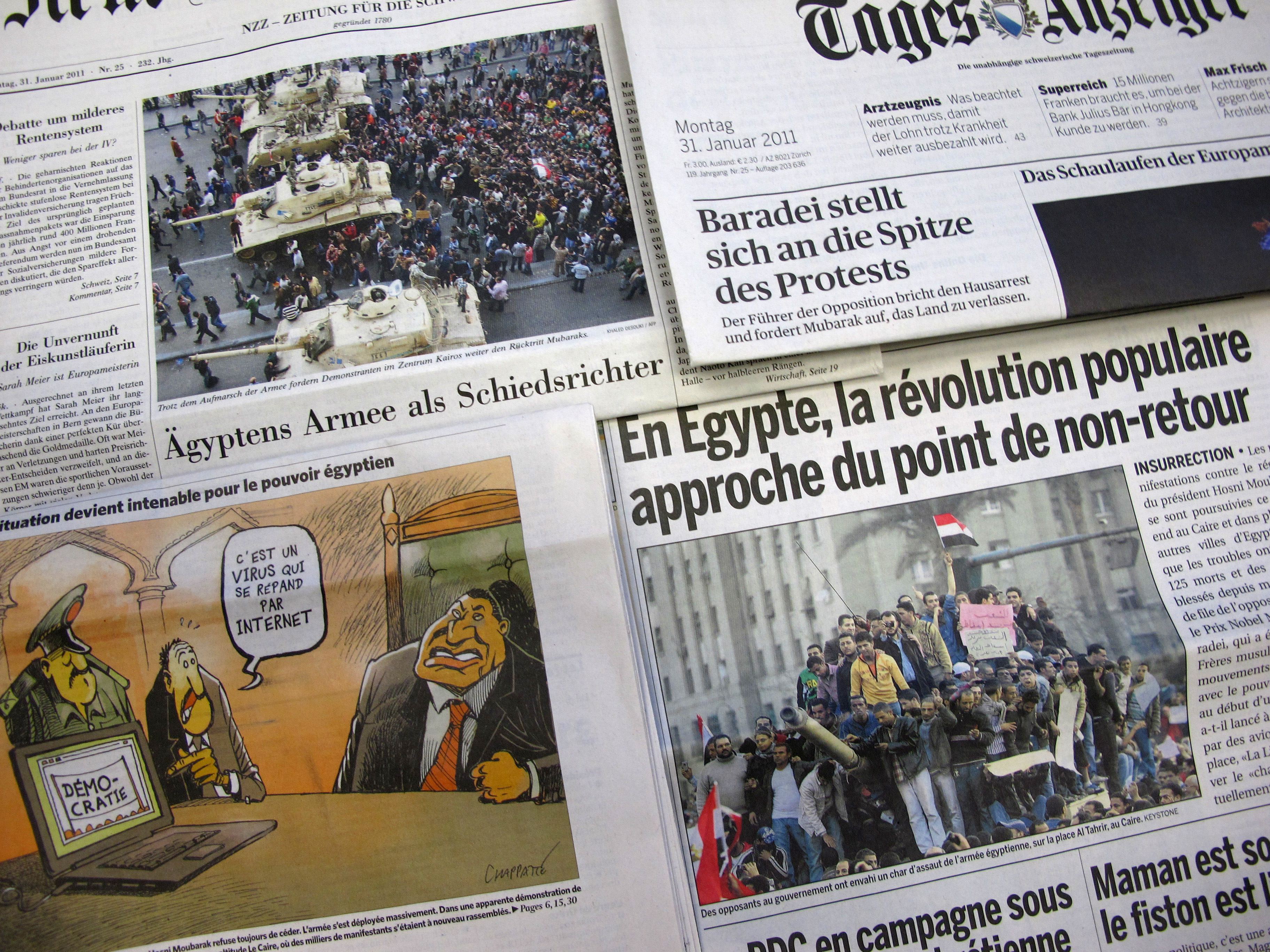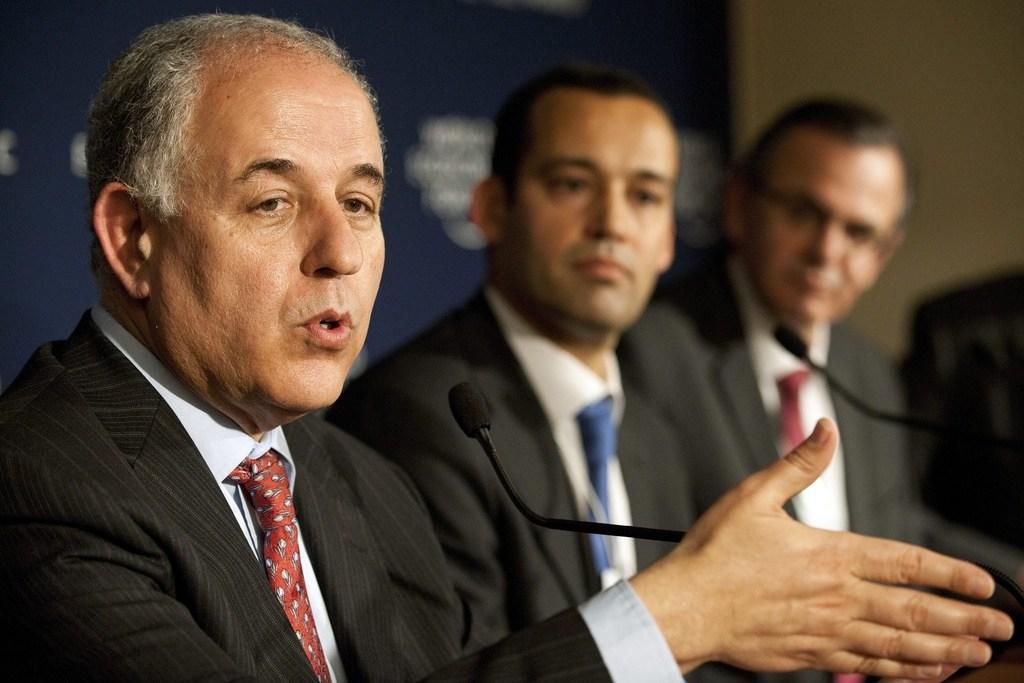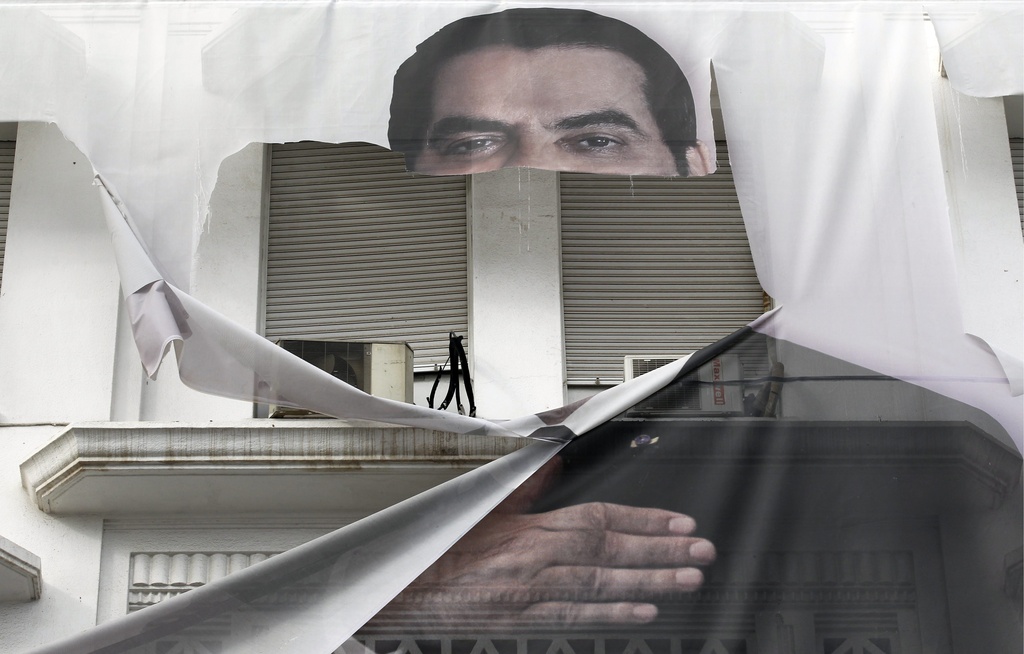Facebook revolutionaries outflank Arab regimes

Social media is the breeding ground for a new activism that is testing authoritarian Arab regimes and traditional opposition and religious groups, says a Swiss expert.
Swiss researcher Patrick Haenni is currently in Tunisia for the International Crisis Group. He has been researching Islamist movements, the internet and blogs for a number of years for the Fribourg-based Religioscope organisation.
Social networking sites like Twitter, Flickr, Facebook and YouTube have been used recently to mobilise anti-government protests in Tunisia, Egypt and Sudan.
In Egypt, internet and phone text messages remained blocked on Monday for the fourth day running in an apparent move by the authorities to disrupt protest organisers.
A coalition of opposition groups has meanwhile called for a million people to take to Cairo’s streets on Tuesday to ratchet up pressure for President Hosni Mubarak to leave.
Haenni’s work involves frequent field trips; he was in Egypt only two months ago.
swissinfo.ch: What are the origins of the role played by the internet and social networking sites in Egypt?
Patrick Haenni: At the end of 2004 blogs by Muslim Brotherhood supporters managed to help prise open this fairly non-transparent organisation. This led a movement of openness and a new culture of activism drawing on the culture and values of the internet.
There was then a switch from the blog to Facebook, with its strong interactive elements, and these young Muslim Brotherhood supporters encountered youngsters who were either active politically or socially in other areas or not at all.
The use of Facebook also opened them up to the rest of the world, a lot more so than blogs ever did.
swissinfo.ch: What are the characteristics of this new form of activism?
P.H.: Over recent weeks we have seen how the internet generation has imposed itself on the political scene, especially thanks also to Arab satellite TV stations broadcasting their stories and images.
In Tunisia, where I am now, one of them has become secretary of state. The walls of Tunis are covered with graffiti thanking this generation for their role, as well as young rappers who helped drive this new activist culture.
Facebook activists and rappers like “El General” were among the first to be arrested following the uprising in Tunisia.
These kind of new activists do not follow traditional ideological movements. They are not interested in all-encompassing global solutions, old bloody revolutions like in Russia or France, or an Islamic state. They are not fighting for a model for society or a particular political programme, but for a clear political regulatory framework and being able to live together peacefully. This is why they bring together all kinds of different people and ideas.
swissinfo.ch: What has been the impact of this new form of activism in Tunisia after the fall of President Zine al-Abidine Ben Ali?
P.H : Facebook was the main vector for the mobilisation against the regime. It had an amplifying effect by broadcasting images of the repression and allowing various groups to meet up, thus speeding up their politicisation.
The result is that in Tunisia there is a kind of autonomous revolutionary legacy that exists totally outside the traditional political arena. Tunisians are convinced they led their own revolution and nobody else has the right to exploit it.
The success of the movement in Tunisia is basically linked to the Ben Ali’s incredibly authoritarian regime.
swissinfo.ch: To what extent can this development be witnessed in other parts of the Arab world?
P.H : Longstanding political configurations between authoritarian regimes and opposition groups, which are no less rigid in the way they function or their views on society, are being circumvented by this new culture which I would describe as liberal.
With this young globalised culture, which is being built as we watch, the discourse is no longer ideological or even Islamist. It’s a simple political platform focused on human rights, pluralism and democracy.
It has also been putting pressure on what has been a political weakness for this region: social questions ignored by both the political elite and religious opposition groups incapable of expressing a clear line.
Six days of unrest in Egypt has killed more than 100 people and the two sides have reached a stalemate. The army has vowed not to use force against the protesters, who have called a massive march on Tuesday.
On January 29, President Hosni Mubarak named intelligence head Omar Suleiman as his vice-president, and minister of civil aviation Ahmed Shafiq, the new prime minister. It followed Mubarak’s promise on January 28 to name a new cabinet. Suleiman has said Mubarak has asked him to open dialogue with all political parties on constitutional reform.
Mubarak’s vows to address public anger at rising prices, unemployment and huge gap between rich and poor have failed to halt their broader calls for a political ejection of Mubarak and his associates.
Many public buildings across the country have been torched.
The United States and Britain have called for an orderly transition to a more democratic system. An Egyptian opposition coalition that includes the mass Islamist movement the Muslim Brotherhood has turned to Mohamed El Baradei, former head of the UN nuclear watchdog, to form a national unity government and make contact with the military.
The crisis in Egypt follows a revolt that toppled the leader of Tunisia two weeks ago, and a wave of popular anger sweeping other countries in North Africa and the Middle East.
(Translated from French by Simon Bradley)

In compliance with the JTI standards
More: SWI swissinfo.ch certified by the Journalism Trust Initiative












You can find an overview of ongoing debates with our journalists here . Please join us!
If you want to start a conversation about a topic raised in this article or want to report factual errors, email us at english@swissinfo.ch.